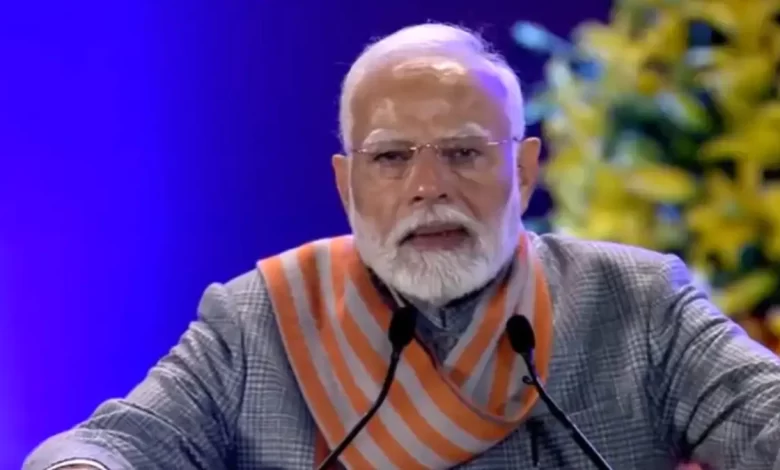
PM Modi launches ‘Mission Mausam’ to commemorates 150th foundation day of IMD
On the occasion of the 150th Foundation Day of the India Meteorological Department (IMD), Prime Minister Narendra Modi participated in a significant event held at Bharat Mandapam in New Delhi. The celebration, which took place at 10:30 AM, marked an important milestone in India’s journey toward becoming a “Weather-ready and Climate-smart” nation.
During the event, Prime Minister Modi launched the ambitious ‘Mission Mausam,’ a comprehensive initiative aimed at enhancing India’s capabilities in weather forecasting, climate monitoring, and disaster management. The mission focused on the development of advanced technologies, including next-generation weather radars, high-resolution atmospheric observations, satellites, and cutting-edge high-performance computing systems.
In addition, PM Modi released the commemorative coin and unveiled the Vision-2047 document. The document outlined strategic plans to build resilience against weather changes and adapt to the growing challenges of climate change in India. It emphasized the importance of timely implementation of forecasting systems, climate adaptation strategies, and measures to mitigate the impacts of climate change, ensuring that the country is well-prepared for future environmental challenges.
While speaking at the event, PM Modi expressed pride in the department’s remarkable journey. “Today, we are celebrating the 150th anniversary of IMD. These 150 years have not only been the journey of the country’s Weather Department but the journey of the advanced science and technology in our country,” he said, acknowledging the significant strides India has made in meteorology and climate science.
The Prime Minister’s remarks emphasized how the IMD’s progress over the years has mirrored India’s advancement in scientific and technological fields, contributing to a deeper understanding of weather patterns, climate changes, and disaster management. This milestone highlights the pivotal role the IMD has played in shaping India’s weather forecasting, agriculture, and climate resilience.
The event was attended by Minister of State for Earth Sciences, Dr. Jitendra Singh, and Celeste Saulo, the Secretary-General of the World Meteorological Organization. Their presence highlighted the global importance of India’s meteorological advancements and its commitment to tackling climate-related challenges.
Its latest initiative, namely Mission Mausam, involved equipping India to predict the weather in a much better way, monitoring climate changes and then delivering an up-to-date understanding of future challenges to the environment, thereby helping to contribute to sustainable development in the nation. It will greatly focus on the understanding of weather and climate processes with a perspective on monitoring the air quality for long-term weather management and intervention.
The 150th Foundation Day of the Alert Centre was marked by a series of celebrations including events, workshops, and events to mark the importance of the country during the long heydays of the Indian Meteorological Department (IMD) in the last 150 years through this institution. On what role the IMD has played in the last decades-since as an essential weather data provider to agriculturists and disaster managers, as well as active disaster prevention, the role of the IMD in enhancing India’s climate resilience has been more noticed.
IMD, therefore, has 1875 as its base year, and this means that it has provided leadership in developing technology and science connected with meteorology services in the country. Since its foundation, it has achieved the objective largely in the continuity of all previous years. And the workforce has updated for the same in addition to, defining weather forecasts that proved very critical for saving lives and livelihood (especially agriculture and disaster risk reduction). Through its continuous evolution, IMD has become a cornerstone in India’s response to climate variability and environmental risks.





